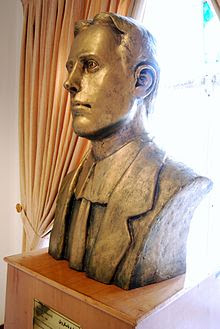News feed from Churches for Middle East Peace [full disclosure: I serve on the CMEP board], with comments (which are strictly my own):
U.S. General Martin Dempsey, chairman of the Joint Chiefs of Staff arrived in Israel Thursday, January 19, to convince Israel to give sanctions and diplomacy a chance before making any decisions about a military strike on Iran. [Is there any reason to believe that diplomacy has truly been tried? How many meetings have actually been held, and how many opportunities squandered?] He also wanted to show U.S. solidarity with Israel and emphasize the close bond between the two countries. The relationship between Israel and Washington has been strained recently in large part because Israel believes the United States and Europe aren’t being tough enough to stop Iran from getting nuclear weapons. [The toughness toward Iran is certainly more than has been shown towards North Korea and Pakistan, both of which have been consdierably more belligerent toward their neighbors than Iran.]
The sanctions on Iran have forced President Obama to walk a thin line between showing support for Israel and not harming the economy this election year. [How can a major disruption of world oil supplies not harm the economy?] Escalating tensions and the just the threat of a military confrontation with Iran would likely drive up oil prices at a time when much of the world is focused on economic recovery. Stuart E. Eizenstat, a former senior official at the Treasury and State Departments who helped draft sanctions against Iran during the Clinton administration told the New York Times, “To appear to back off, when the Iranians are proceeding pell-mell with their nuclear program, would be very difficult for the administration, particularly in an election year…On the other hand, sanctions could harm the economy and his re-election chances. It is an excruciatingly difficult set of choices, and one he will face sooner rather than later.” [Unless, negotiations that proceed on the basis of shared interests and mutual respect are initiated.]
On January 15, the United States postponed a joint exercise with the Israeli military to avoid escalating the situation in the region. The exercise, which sought to integrate U.S, - Israeli missile tracking and interception technology, would be geared to simulating an Iranian response to an Israeli strike on its nuclear facilities. According to reports from Inter Press Service, the Obama Administration did not want to participate unless Netanyahu could assure the U.S. president that Israel won’t attack Iran without Washington’s approval. Publically, officials said the decision was mutual and the exercise will be delayed until the second half of 2012. [Funny how Iranian war-games in their own backyard are viewed as provocative, while the United States would never tolerate such exercises in the Grand Banks or the Gulf of Mexico. Yet, the United States stations warships close to Iran's borders on a routine basis.]
Israeli Defense Minister Ehud Barak tried to ease tensions with the United States ahead of Gen. Dempsey’s visit by telling an Army radio station, “We haven’t made any decision to do this [strike Iran]. This entire thing is very far off. I don’t want to provide estimates [but] it’s certainly not urgent.”
Gen. Dempsey’s short visit to Israel included meetings with Barak, Israel’s military Chief of Staff Lt. Benny Gantz, President Shimon Peres, and Prime Minister Netanyahu. [So, having gone through special envoy George Mitchell, the Secretary of State and a series of lower-level officials to little effect, we are now just talking arms and attack strategies.]
























